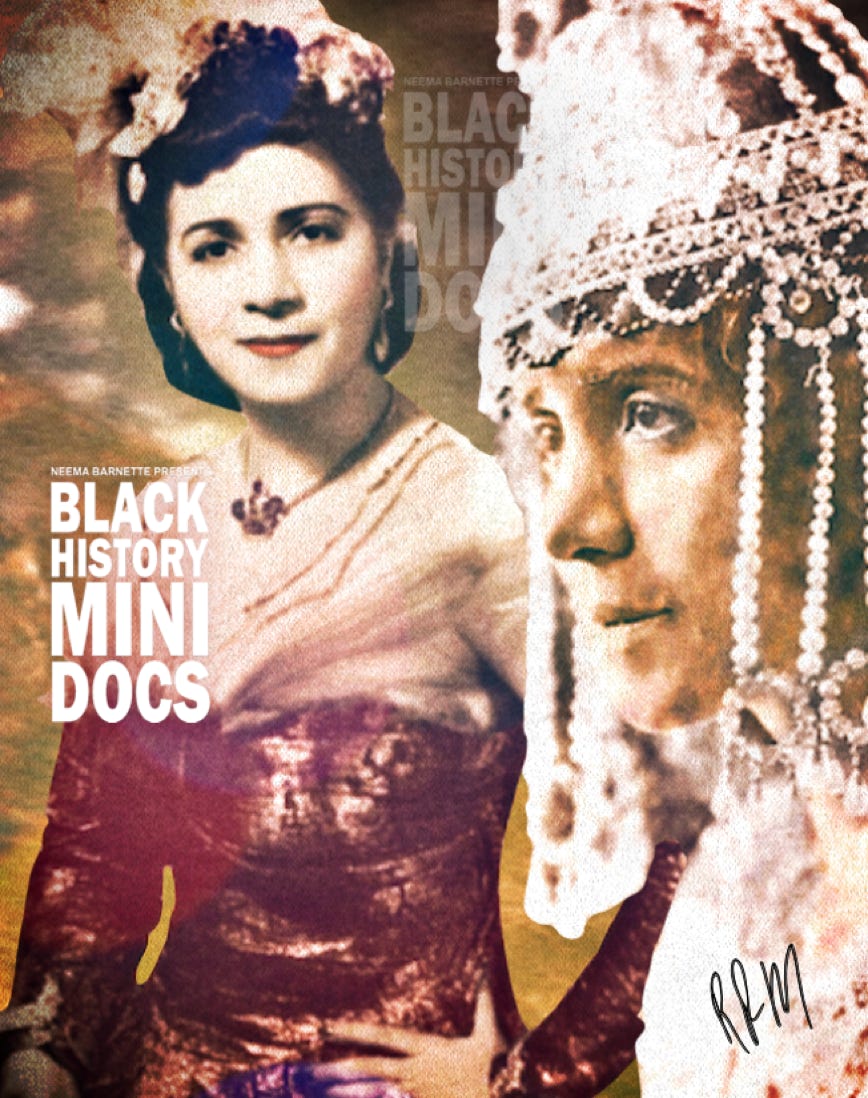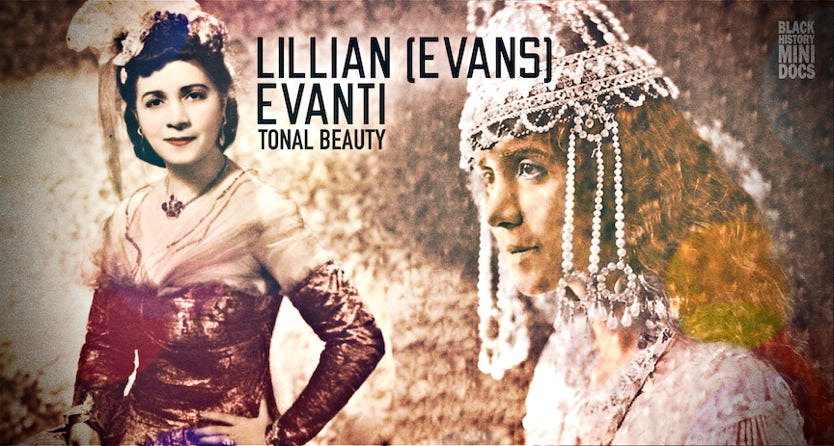

LILLIAN EVANS EVANTI - TONAL BEAUTY
The first African American women to become an international opera star, Lillian (Evans) Evanti, was born on August 12, 1890. Her father, Wilson Evans, was a medical doctor and teacher in Washington, D.C. He was the founder of Armstrong Technical High School and served many years as its principal. Anne Brooks, Evanti’s mother, taught music in the public school system in D.C. Evanti graduated from Howard University in 1917 with her bachelor’s degree in music.
A gifted student and performer, Evanti, spoke and sang in five languages. She and Roy W. Tibbs, her Howard University music professor, had a son, Thurlow Tibbs. Combining her maiden and married names into the stage name, Evanti, a lyric soprano, began singing professionally in 1918. Her career progressed slowly until she moved to France in 1925 where she became the first African American to sing with a European opera company. From France she traveled around Europe and on occasion returned to the United States to perform.
Despite her international popularity she was turned down by the New York Metropolitan Opera because of her race which was well known at the time. However, Evanti remained popular, performing in Latin America as well as Europe. She gave a special command performance for President Franklin D. Roosevelt and his wife, Eleanor Roosevelt in 1934 and they became close friends. She also performed concerts for the armed forces during World War II. In 1941, Evanti began performing at The National Negro Opera Company, the first black opera company established by Mary Cardwell to provide a venue for Black performers. A series of Company performances of La Traviata, where Evanti sang the part of Violetta, was hugely successful and attracted over 12,000 people, a extremely large number considering the times.
Evanti, a soprano, sang at the Belasco Theater in 1926 with Marian Anderson. In 1943, she performed with the Watergate Theater barge on the Potomac River. In 1944, she appeared at The Town Hall in New York City. She received acclaim as Violetta in Verdi's La traviata as produced by the National Negro Opera Company in 1945.
Over her career Evanti performed in twenty four operas. Near the end of her life Evanti returned to Washington, D.C. where she coached and gave soprano voice lessons. Evanti's last years were spent singing, teaching voice, and being politically active. In 1963, she walked with her friend Alma Thomas in the March on Washington.
She worked to establish home rule in the District of Columbia, and along with her friend, Eleanor Roosevelt. Together they both lobbied Congress for the creation of a national performing arts center in Washington. Lillian Evanti died on December 6, 1967, at Ruth's Personal Care Home in Washington, D.C., after a long illness. She was survived by her son, Thurlow, and two grandchildren.
Source: Wikipedia
Copyright Black History Mini Docs Inc. 2026 All Rights Reserved.















